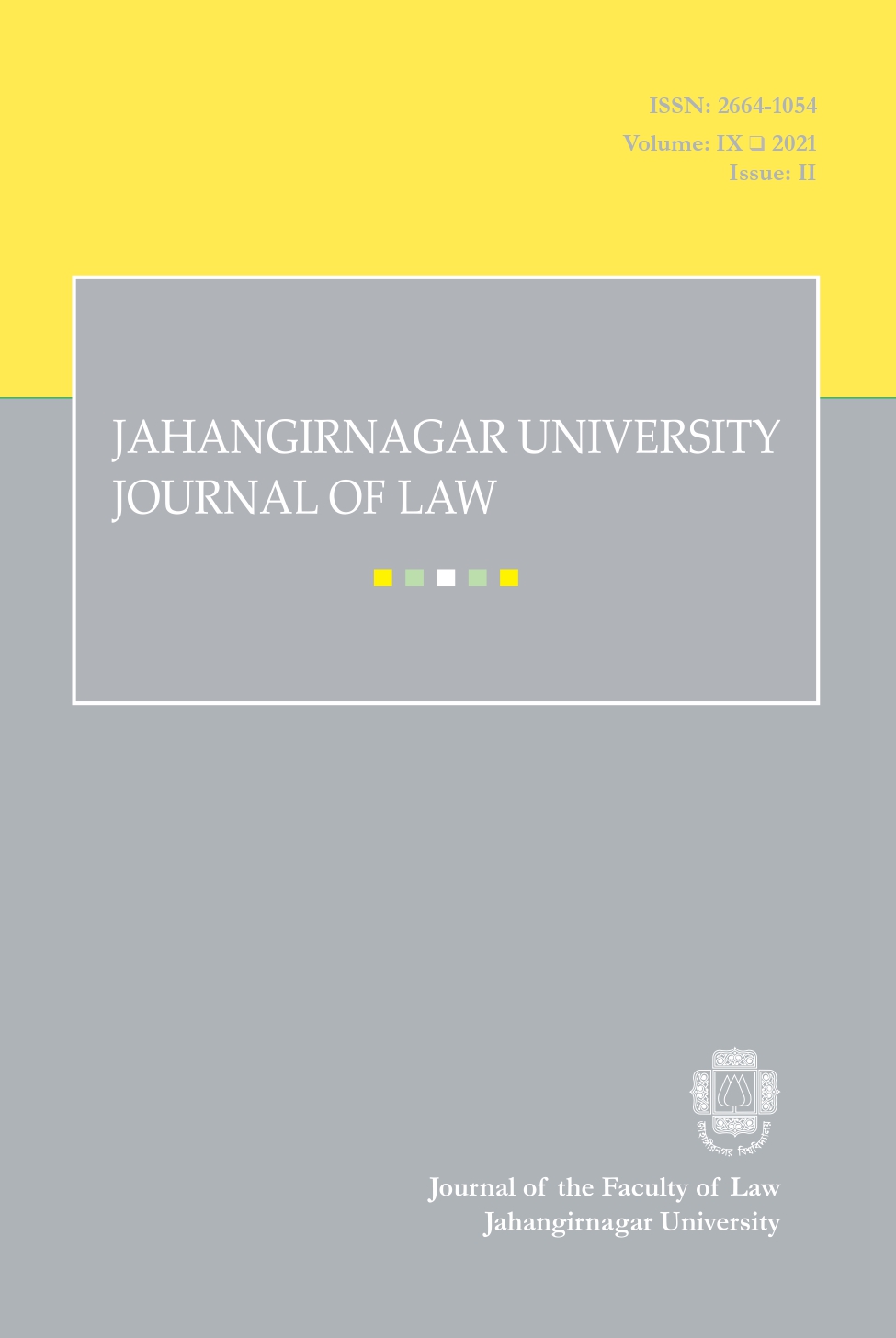The Bangladeshi Legal System and Bangladeshi Conception of Law: Status of Legal Pluralism and the Issue of Legal Reform
Main Article Content
Abstract
This paper first focuses on the Bangladeshi legal system dividing the discussion chronologically into five historical periods, namely Hindu, Muslim, British, Pakistani and the post-liberation-Bangladesh period. It then examines the polarised trend or proliferation of Islamic extremism in the Bangladeshi legal system, which has had a direct impact on the debates on legal reform, particularly in the personal laws, in the country. An analysis of the post-2008 outlook also appears in this paper in order to examine, specifically through the 15th amendment of the Constitution, how far Bangladesh has been able to get back to its initial secular stand, which was apprehended by the original Constitution of 1972. This of course requires an examination of what is meant by ‘secularism’. Within this particular context, a theoretical discussion of Bangladeshi legal pluralism through the reasoning of minority protection in a Muslim-dominated scenario is also developed in this paper. It also analyses the Bangladeshi legal education system to show how the traditional textbook-based legal education impacts on and generates a formal conception of law among Bangladeshi lawyers and judges, which is obviously different from the law in society or culture in Bangladesh.

